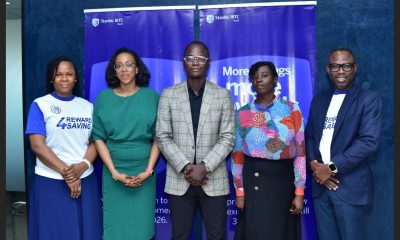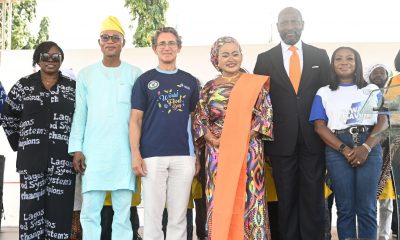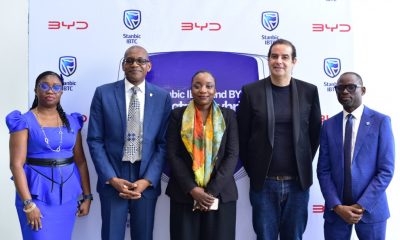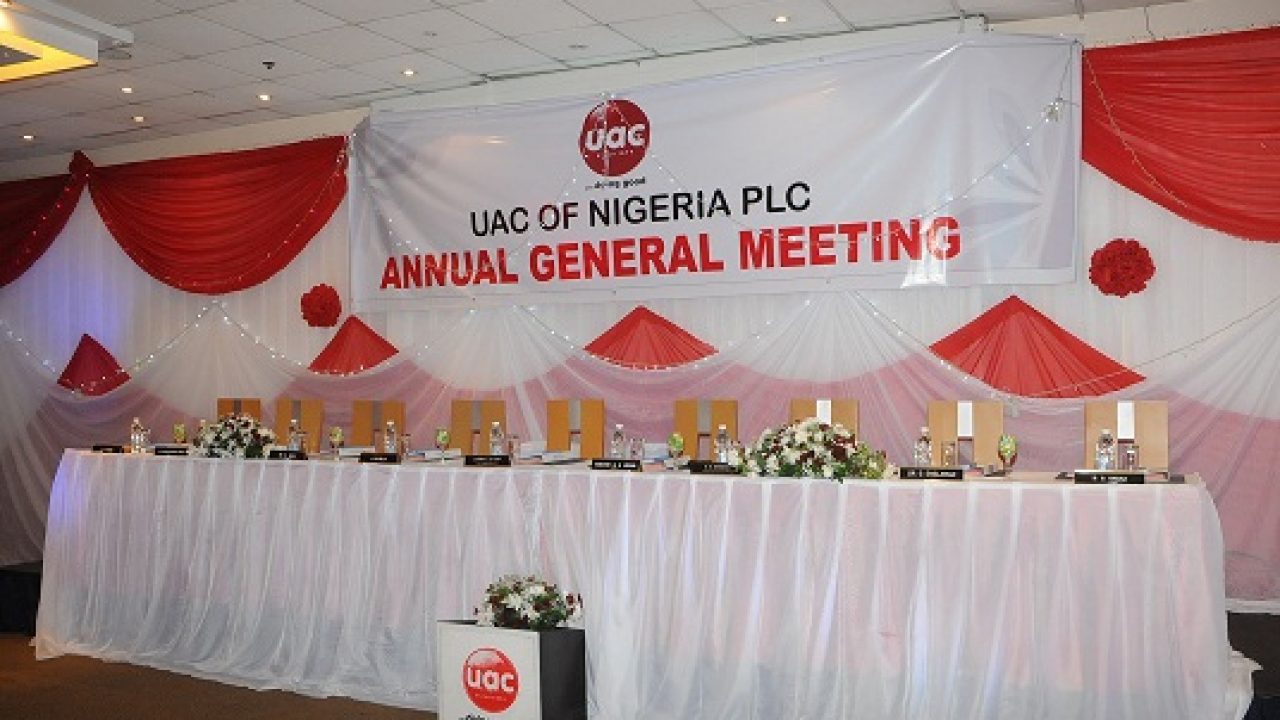Banking
True Potential of Agriculture Lies in Value Addition—Stanbic IBTC Bank
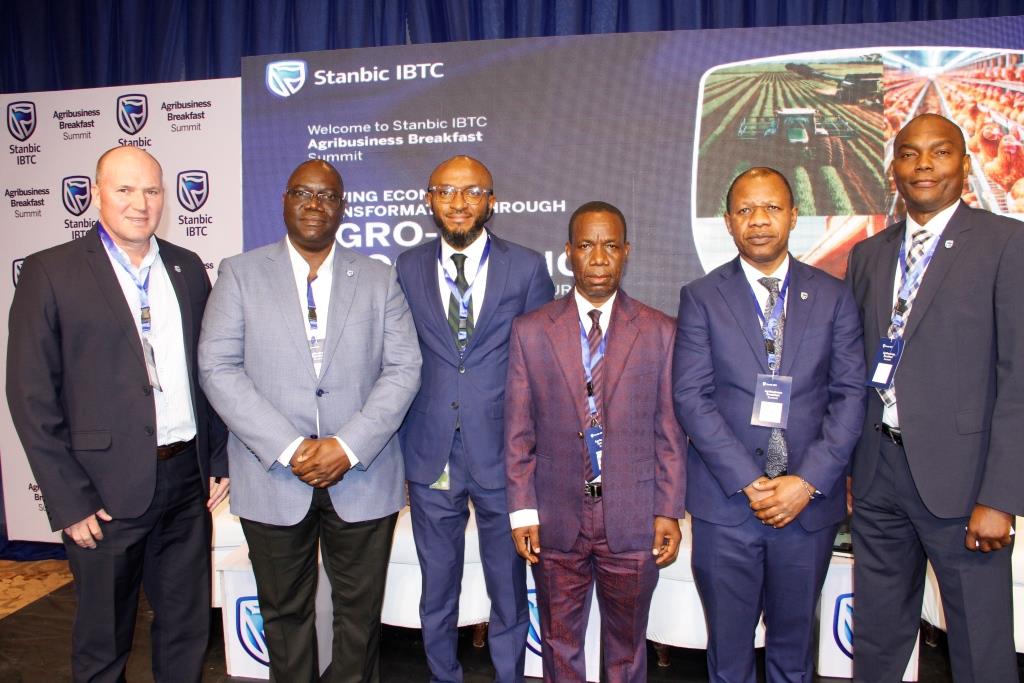
By Aduragbemi Omiyale
Stanbic IBTC Bank has emphasized the importance of agriculture as a key contributor to Nigeria’s economy, providing millions of citizens with employment and significantly contributing to the nation’s Gross Domestic Product (GDP).
At the 2024 Agribusiness Breakfast Summit themed Driving Economic Transformation Through Agro-Processing: Building a Sustainable Future, the chief executive of the bank, Mr Wole Adeniyi, said, “The true potential of agriculture lies beyond cultivation – it is in value addition, transforming raw products into high-quality goods that can compete both locally and globally.”
“Agro-processing has the power to unlock untapped potential, generate wealth, create jobs, and reduce post-harvest losses, positioning Nigeria as a leading agro-industrial hub in Africa.
“Despite the huge benefits the sector offers, the agro-industry faces a huge financing deficit of $182 billion according to the Nigeria Economic Summit Group (NESG) 2024 First Half Outlook Report, despite government efforts at boosting funding,” he added.
He stated further that transforming the nation’s agriculture requires a multifaceted approach, which involves addressing issues such as infrastructure, access to finance, technology adoption, and capacity building and Stanbic IBTC Bank remains committed to building a sustainable future for Nigeria’s agriculture sector.
The lender said its commitment is to provide access to finance, infrastructure, capacity building, and technology to stakeholders.
The Executive Director of Business and Commercial Banking at Stanbic IBTC Bank, Remy Osuagwu, noted, “The Stanbic IBTC 2024 Agribusiness Breakfast Summit reinforces the critical role that agro-processing plays in strengthening our agricultural value chain, improving food security, and creating sustainable wealth for our communities.
Business Post reports that the summit featured panel discussions and networking opportunities, providing a platform for key industry leaders to share insights and uncover opportunities in the agricultural value chain.
It also featured remarks from the Minister of Agriculture and Food Security, Mr Abubakar Kyari, represented by the Director of Agribusiness and Market Development, Mr Adebiyi Michael, who said “Amidst the declining global oil prices, the agricultural sector is gaining more attention, driving the government’s commitment to economic diversification, and boosting agricultural productivity for local and international markets.”
“While we appreciate the role of the private sector in the transformation of the agricultural sector, the Ministry has continued to collaborate with financial institutions such as Stanbic IBTC Bank, in the provision of affordable credit to agro-processors, thereby transforming agriculture from being merely a developmental program into a profitable business sector,” the Minister added.
Banking
CIBN to Back ACAMB on Professional Development, Industry Advocacy

By Modupe Gbadeyanka
The Chartered Institute of Bankers of Nigeria (CIBN) has promised to support the ambitious plans of the Association of Corporate and Marketing Professionals in Banks (ACAMB).
At a meeting between the leaderships of the two organisations on Tuesday, the president of CIBN, Professor Pius Deji Olanrewaju, said it was impressed with the capability development and the undergraduate mentorship schemes of ACAMB under its leader, Mr Jide Sipe.
The CIBN chief commended the forward-thinking vision of the group, saying it had raised standards across Nigeria’s banking sector.
“ACAMB’s support has given CIBN and the banking sector brand equity,” he said, praising the association’s record in reputation management. recalling ACAMB’s role in addressing crises within the sector, describing the partnership as strategic and beneficial.
He further pledged support for ACAMB’s 30th anniversary in September 2026, its AGM, and other programmes, including fundraising initiatives.
“I want to assure you that everything you have presented today has been clearly noted and will be acted upon.
“We are fully committed to working closely with you so as to translate these discussions and vision into measurable progress. Our shared goal is to strengthen the sector, protect its reputation, and enhance its public image in a meaningful and lasting way.
“This meeting discussed various initiatives and reforms crucial for the future of our industry, including the need for continuous training and adaptation to new programs,” Mr Olanrewaju stated.
Speaking at the meeting, the president of ACAMB described the visit as a crucial first step in his tenure, aimed at contributing significantly to giving flight to his vision and that of ACAMB.
“When we assumed office, one of the first things we agreed on was the need to visit key stakeholders.
“However, before reaching out more broadly, we felt it was important to begin with our primary constituency and core stakeholders. We want them to understand the direction we are taking and to support the work we are doing, so that ACAMB can achieve greater success than it has in the past.
“We couldn’t have properly started our tenure without this very important meeting with the CIBN,” Mr Sipe stated
He introduced the newly constituted ACAMB Exco, which includes the 2nd Vice President, Morolake Phillip-Ladipo; General Secretary, Olugbenga Owootomo; Assistant General Secretary, Ademola Adeshola; Publicity Secretary, Abiodun Coker; and Executive Secretary, Fadekemi Ajakaiye.
Banking
All Set for Second HerFidelity Apprenticeship Programme

By Modupe Gbadeyanka
Registration for the second HerFidelity Apprenticeship Programme (HAP 2.0) organised by Fidelity Bank Plc has commenced.
The Divisional Head of Product Development at Fidelity Bank, Mr Osita Ede, informed newsmen that the initiative was designed to empower women with sustainable entrepreneurship skills.
The lender created the flagship women-empowerment initiative to equip women with practical, income‑generating skills and structured pathways to entrepreneurship.
“HerFidelity Apprenticeship Programme 2.0 reflects our commitment to continuous improvement. Having evaluated feedback from the first edition, we have returned with stronger partnerships and deeper mentorship programmes to ensure that women acquire not just skills, but sustainable economic opportunities,” he said.
“At the heart of the programme is guided, real‑world learning. Participants will undergo intensive apprenticeship training under reputable institutions and industry experts across select fields such as hair styling, shoe making, auto mechatronics, and interior decoration,” Mr Ede added.
He noted that HerFidelity Apprenticeship Programme 2.0 goes beyond skills acquisition by offering participants a wide range of business advisory services. These include business and financial literacy training, mentorship support throughout the apprenticeship journey, access to Fidelity Bank’s women‑focused and SME financial solutions, as well as guidance on business formalisation and growth strategies.
Further emphasising the bank’s vision, Mr Ede said, “By integrating structured mentorship with entrepreneurial development, Fidelity Bank is positioning women not just as trainees, but as future employers, innovators, and economic contributors within their communities. This aligns with our mandate to help individuals grow, businesses thrive, and economies prosper.”
Banking
The Alternative Bank Opens New Branch in Ondo

By Modupe Gbadeyanka
A new branch of The Alternative Bank (AltBank) has been opened in Ondo State as part of the expansion drive of the financial institution.
A statement from the company disclosed that the new branch would support export-oriented agribusinesses through Letters of Credit and commodity-backed trade finance, ensuring that local producers can scale beyond state borders.
For SMEs, the bank is introducing robust payment rails, asset financing for equipment and inventory, and supply chain-backed facilities that strengthen working capital without trapping businesses in interest-based debt cycles.
The Governor of Ondo State, Mr Lucky Aiyedatiwa, represented by his Chief of
Staff, Mr Olusegun Omojuwa, at the commissioning of the branch, underscored the importance of financial institutions in economic development.
“The pivotal role of financial institutions to economic growth and development of any economy cannot be overemphasised. It provides access to capital, supporting small and medium-scale enterprises and encouraging savings.
“Therefore, I have no doubt in my mind that the presence of The Alternative Bank in Ondo State will deepen financial services, create employment opportunities and stimulate economic activities across various sectors,” he said.
In her remarks, the Executive Director for Commercial and Institutional Banking (Lagos and South West) at The Alternative Bank, Mrs Korede Demola-Adeniyi, commended the state government’s leadership and outlined the lender’s long-term vision for Ondo State.
“As Ondo State steps into its next fifty years, and into the future anchored on the sustainable development championed during the recent anniversary celebrations, The Alternative Bank is here to be the financial engine for that vision. We didn’t come to Akure to hang banners. We came to fund work, farms, shops, and factories.”
With Ondo State’s economy anchored largely on agriculture, particularly cocoa production, poultry farming, and other cash crops, alongside a growing SME and trade ecosystem, AltBank is deploying sector-specific financing solutions tailored to these strengths.
For cocoa aggregators, processors and poultry operators, the bank will provide production financing, facility expansion support, machinery lease structures, and structured trade facilities under its joint venture and cost-plus financing models, with transaction cycles of up to 180 days for commodity trades and longer-term structured asset financing for equipment and infrastructure.
The organisation is a notable national non-interest bank with a physical network now surpassing 170 locations, deploying capital to solve real-world challenges through initiatives such as the Mata Zalla project, which saw to the training of hundreds of women as electric tricycle drivers and mechanics.
-

 Feature/OPED6 years ago
Feature/OPED6 years agoDavos was Different this year
-
Travel/Tourism10 years ago
Lagos Seals Western Lodge Hotel In Ikorodu
-

 Showbiz3 years ago
Showbiz3 years agoEstranged Lover Releases Videos of Empress Njamah Bathing
-

 Banking8 years ago
Banking8 years agoSort Codes of GTBank Branches in Nigeria
-

 Economy3 years ago
Economy3 years agoSubsidy Removal: CNG at N130 Per Litre Cheaper Than Petrol—IPMAN
-

 Banking3 years ago
Banking3 years agoSort Codes of UBA Branches in Nigeria
-

 Banking3 years ago
Banking3 years agoFirst Bank Announces Planned Downtime
-

 Sports3 years ago
Sports3 years agoHighest Paid Nigerian Footballer – How Much Do Nigerian Footballers Earn






